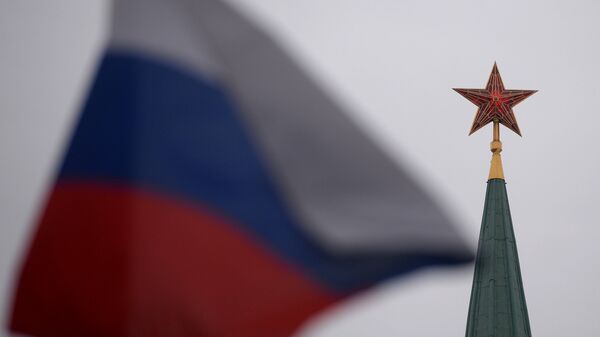In addition, according to the source, the ultimate option would be an embargo on Russian energy exports. However, the White House will not do that since Europe receives about one-third of its energy exports from Russia.
"Any such embargo would deal a severe blow to already struggling European economies," the article read.
Last week, US Secretary of State John Kerry said that in several days Washington could decide on new sanctions against Moscow over the situation in Syria. In response, Russian top diplomat Sergei Lavrov said Russia would definitely respond to any new restrictions.
According to the article, currently the State Department is reviewing proposals for the White House on a "range of sanctions options." The source said several possible sanctions regimes were in discussion but they "are not ideal."
Emma Ashford, a research fellow at the Cato Institute in Washington, pointed out that as for Russia Western sanctions have not been effective so far.
"The Kremlin has not shown any inclination to change its behavior based on sanctions, and it’s hard to make the argument that more sanctions would change its approach toward Syria," she said.
Last week, Financial Times reported that Renzi led a group of EU countries to pressure Germany, France and Britain not to impose new sanctions against Russia over the situation in Syria.
"Usually, sanctions are used to influence a country to change its policy, including ending a military conflict. In the event of Russia, sanctions are aimed to end the crisis in Ukraine and to stop violence in Aleppo. Nevertheless, it is hard to say how sanctions could help the situation," an article in the German magazine WirtschaftsWoche Heute read.
In other words, sanctions do not always reach their goals. This can be also predicted for Western anti-Russian sanctions, the article read.
The author underscored that US and EU sanctions failed to have an impact on decisions by the Russian government. At the same time, Russia’s responsive measures to sanctions have damaged the economies in many European countries.
"Moreover, sanctions have side effects for both parties because in fact they are restrictive measures for certain economic sectors. But the economy of the country that introduced sanctions could sustain double economic losses because it has to abandon established trade ties," the article read.
It added that Europe should not impose further restrictions against Moscow even if currently there is no precondition to lift the existing sanctions.
The head of Russian State Duma commitee of CIS affairs Leonid Kalashnikov believes that sanctions are a two-way mechanism, so when a country sanctions Russia aiming to punish Moscow, it "punishes itself." Nevertheless, he does not rule out that the West will impose more anti-Russian sanctions.
Political analyst Alexander Asafov underscored that the US does have options to mount pressure on Russia via sanctions, but the question is "how far Washington would be ready to go."
"There are always ways to impose new sanctions, including an economic embargo. But in the current situation new sanctions would risk undermining the European economy," he told the Russian online newspaper Vzglyad.
"Western businessmen have repeatedly called for their governments to lift anti-Russian sanctions because they were harmful for business. In the current context of global economic cooperation sanctions would be negative for all parties involved. They cannot be imposed over and over again," he concluded.





